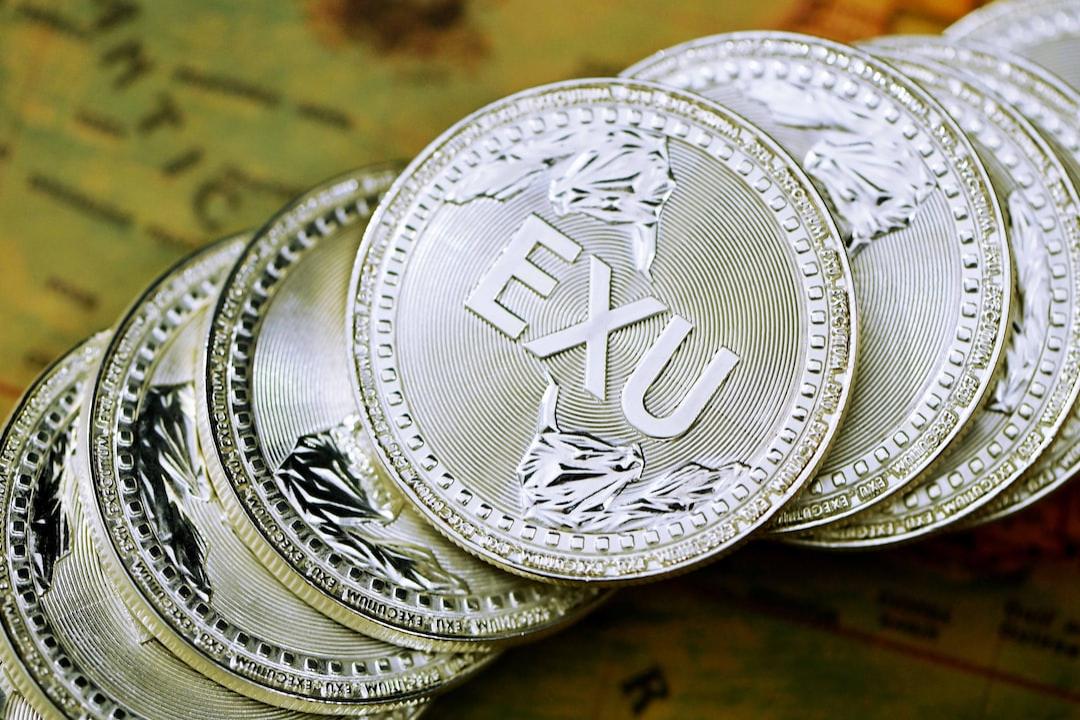Blockchain login systems are receiving significant attention these days. They are not merely a buzzword; they are genuinely transforming our approach to security. With the rise of cyber threats, entities ranging from banks to hospitals are seeking improved methods to safeguard their data. Blockchain offers a novel way to log in that is purported to be exceptionally secure. But what exactly is a blockchain login, and why should we be concerned? Let’s delve into the details.
**Key Takeaways**
– Blockchain login systems utilize cryptographic techniques to secure user data.
– Decentralization in blockchain eliminates single points of failure, thereby enhancing security.
– These systems are being adopted across various industries, including finance and healthcare.
– The immutability of blockchain guarantees that once data is recorded, it cannot be altered.
– Despite its advantages, blockchain login faces challenges such as technical complexity and regulatory issues.
**Understanding Blockchain Login Systems**
**What Are Blockchain Login Systems?**
Blockchain login systems represent a new method of securing online access through the use of blockchain technology. Unlike traditional login methods that depend on centralized databases, blockchain logins utilize decentralized networks. This means your data is not stored in a single location but is distributed across multiple points, making it more difficult for hackers to infiltrate. This decentralized approach provides a more secure means of managing credentials. Imagine possessing a digital key that only you can access, without the need to remember intricate passwords or worry about data breaches.
**How Blockchain Login Systems Work**
Here’s how it typically operates:
– When you register, your identity is linked to a unique cryptographic key. This key serves as your digital ID.
– Each time you log in, the system verifies your identity using this key rather than a password.
– Your login is recorded on the blockchain, ensuring it cannot be tampered with.
This method not only simplifies the login process but also enhances security by eliminating the reliance on passwords, which can be stolen or forgotten.
**Key Features of Blockchain Login Systems**
Blockchain login systems come with several notable features:
– **Decentralization:** Your data is stored across multiple nodes, minimizing the risk of a single point of failure.
– **Immutability:** Once your data is recorded, it cannot be altered, ensuring integrity.
– **Transparency:** Every login attempt is logged and can be audited, providing a clear access trail.
Blockchain login systems extend beyond mere security; they symbolize a shift towards more user-controlled digital identities. By empowering users, these systems aim to mitigate the risks associated with centralized data storage and password management.
**The Security Advantages of Blockchain Login**
**Enhanced Data Protection**
Blockchain login systems provide a robust defense against unauthorized access. By employing cryptographic techniques, these systems ensure that data remains secure and private. Even if an individual attempts to manipulate the information, the design of the blockchain makes it nearly impossible to alter any data without detection. This level of security is revolutionary for safeguarding sensitive information.
**Decentralization and Its Benefits**
One of the standout features of blockchain technology is its decentralization. Unlike traditional systems that depend on a central authority, blockchain distributes data across a network of nodes. This means there is no single point of failure. If one node is compromised, the others remain unaffected, making it exceedingly difficult for hackers to breach the entire system. Additionally, decentralization fosters transparency, as all transactions are visible to network participants.
**Immutability and Trust**
The immutability of blockchain is another crucial advantage. Once data is recorded, it cannot be modified or deleted. This ensures a high level of trust, allowing users to be confident that the information they view is accurate and untampered. For industries where data integrity is critical, such as finance and healthcare, this feature is invaluable.
Blockchain login systems are paving the way for a more secure digital future by offering unprecedented protection against cyber threats and fostering trust in digital interactions. By integrating blockchain with identity management, organizations can benefit from quicker verification processes, lower costs, and enhanced data privacy, making it a compelling choice for contemporary security needs.
**Implementing Blockchain Login in Various Industries**
**Blockchain Login in Finance**
In the finance sector, the integration of blockchain login systems is transforming how we perceive security and efficiency. Blockchain technology provides a secure and transparent method for handling transactions and identity verification. This is particularly vital for banks and financial institutions that manage sensitive data daily. By utilizing blockchain, these entities can reduce fraud and streamline processes such as cross-border payments. Some banks have already begun employing blockchain to secure transactions, which not only reduces costs but also increases trust among users.
**Healthcare Applications of Blockchain Login**
The healthcare industry can also reap significant benefits from blockchain login systems. With the ability to securely store and share patient data, blockchain ensures that sensitive information remains confidential. This is essential for maintaining patient privacy and enhancing the interoperability among different healthcare providers. The decentralized nature of blockchain allows for secure access to patient records by authorized parties, thereby minimizing the risk of data breaches and errors.
**Blockchain Login for Supply Chain Security**
Supply chains are intricate networks that necessitate transparency and traceability. Blockchain login systems can provide these features by offering a reliable method for tracking the movement of goods. This can aid in reducing fraud and counterfeiting, ensuring that products are authentic and safe. Companies like Walmart are already utilizing blockchain to enhance their supply chain security, demonstrating that this technology can lead to significant improvements in efficiency and trust.
**Challenges and Considerations in Blockchain Login Adoption**
**Technical Challenges**
The adoption of blockchain login systems is not without its difficulties. Scalability is a significant issue; as more users join, the system must manage a vast number of transactions without experiencing delays. Additionally, energy consumption poses a challenge; some systems, such as Proof of Work, require substantial power, which raises environmental concerns. Finding ways to enhance the energy efficiency of these systems is critical.
– **Scalability:** Managing increased transactions without lag
– **Energy Efficiency:** Reducing power consumption
– **Security:** Protecting against threats such as double-spending and Sybil attacks
The adoption of blockchain faces considerable challenges, primarily related to technological aspects, including security, scalability, and flexibility.
**Regulatory and Compliance Issues**
Navigating the legal landscape can be complex. Different regions have varying regulations regarding data privacy and blockchain usage. Companies must ensure compliance to avoid substantial fines. Furthermore, blockchain’s association with cryptocurrencies can lead to confusion, resulting in additional regulatory obstacles.
– Understand regional regulations
– Ensure compliance with data privacy laws
– Clarify blockchain’s role beyond cryptocurrencies
Blockchain technology has the potential to streamline compliance with regulations, thereby enhancing cybersecurity readiness in today’s digital environment.
**User Education and Awareness**
There is often a misconception that blockchain is synonymous with cryptocurrencies, which presents a challenge. Educating users about the broader applications of blockchain, such as secure logins, is essential. Without adequate understanding, adoption may stagnate. It is crucial to demonstrate the advantages that extend beyond digital currencies.
– Distinguish blockchain from cryptocurrencies
– Highlight security and transparency benefits
– Promote understanding across different sectors
**Future Trends in Blockchain Login Systems**
**Integration with AI and Machine Learning**
Blockchain login systems are beginning to collaborate with AI and machine learning, which is quite promising. This combination is akin to providing a smart upgrade to your security. AI can identify patterns and predict potential security threats, making blockchain systems even more resilient. Imagine a login system that learns from each interaction, becoming smarter and more secure over time. That is the future we envision.
**The Role of Blockchain in Identity Management**
Identity management is undergoing a transformation thanks to blockchain. Traditional systems have often been cumbersome, typically centralized and vulnerable to attacks. However, with blockchain, we are discussing the creation of decentralized identities. This means your personal information is not stored in one location, making it more challenging for hackers to access it. It is akin to possessing a digital passport that only you can control.
**Predictions for Blockchain Login Adoption**
Looking forward, the adoption of blockchain login systems is expected to increase. Here are the reasons:
– **Increased Security Needs:** As cyber threats escalate, so does the demand for secure systems.
– **Regulatory Push:** Governments are starting to acknowledge the advantages of blockchain, advocating for its adoption.
– **User Awareness:** More individuals are recognizing the benefits of blockchain and are eager to engage with it.
The future of blockchain login systems is promising. With AI integration and a focus on decentralized identities, we are moving toward a world where your digital identity is as secure as possible, and that is something everyone can support.
**Case Studies: Successful Blockchain Login Implementations**
**Banking Sector Innovations**
In the banking realm, security is paramount. With blockchain, banks have discovered a method to keep transactions secure. J.P. Morgan, for instance, has been utilizing blockchain to ensure their transactions are fraud-proof and secure. This technology allows them to reduce costs and expedite processes, all while safeguarding customer data. It is akin to having a digital vault that only authorized individuals can access.
**Healthcare Security Enhancements**
Data privacy is critical in healthcare. Blockchain is stepping in to assist hospitals and clinics in securing patient information. Aetna, a significant player in health insurance, employs blockchain to protect patient records, ensuring they are tamper-proof and confidential. This guarantees that doctors can rely on the accuracy of the data they access, providing patients peace of mind regarding the safety of their information.
**Supply Chain Transparency and Security**
In supply chains, knowing the origin of products is crucial. Blockchain offers a method for tracking every step a product takes. For example, Walmart is utilizing blockchain to trace the journey of their goods, ensuring authenticity and preventing substitution or counterfeiting. This not only enhances trust but also aids in identifying issues early, ensuring products are safe and genuine.
Blockchain is not solely about securing data; it is about establishing a system in which trust is inherent in every transaction. Whether in banking, healthcare, or supply chains, blockchain is proving to be a transformative technology, enhancing transparency and security in processes.
**Wrapping Up: The Future of Blockchain in Security**
In conclusion, blockchain is no longer limited to Bitcoin. It functions as a digital fortress, protecting our data from prying eyes. Its decentralized structure makes it more challenging for hackers to disrupt systems. Furthermore, transparency allows everyone to see what is occurring, thereby fostering trust. As more businesses recognize the potential of blockchain, we will likely witness its proliferation across various sectors, from banks to hospitals. While it is not a panacea, it represents a significant step toward enhanced security. The future remains uncertain, but one thing is clear—blockchain is here to stay, and it is reshaping the landscape of digital security.
**Frequently Asked Questions**
**What is a blockchain login system?**
A blockchain login system utilizes blockchain technology to manage and secure user logins, making it more challenging for hackers to access your information.
**How does a blockchain login system work?**
It functions by storing login information on a decentralized network, meaning that there is no single point that can be attacked to access your data.
**What are the benefits of using blockchain for logins?**
The benefits include enhanced security, as data is stored across multiple locations, making it very difficult to alter or hack.
**Can blockchain login systems be used in industries like healthcare?**
Yes, they can be employed in healthcare to protect patient records and ensure that only authorized individuals can access sensitive information.
**Are there any challenges with blockchain login systems?**
Some challenges include technical issues, comprehension of the technology, and adherence to legal regulations.
**What is the future of blockchain login systems?**
The future may include increased integration with AI and improved identity management, making logins even more secure and intelligent.


